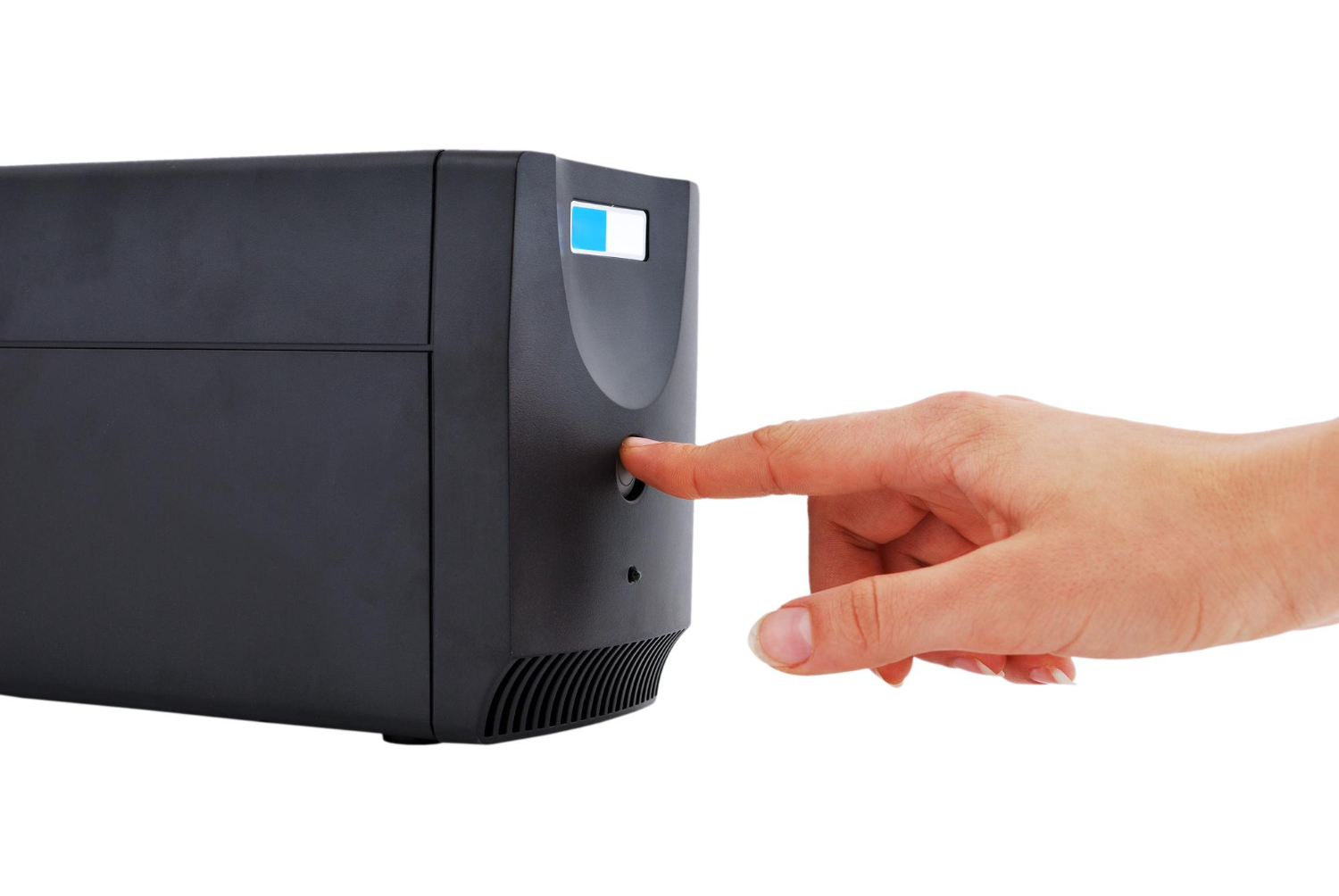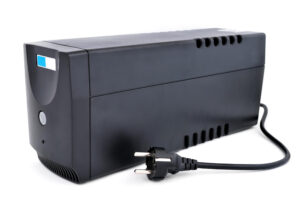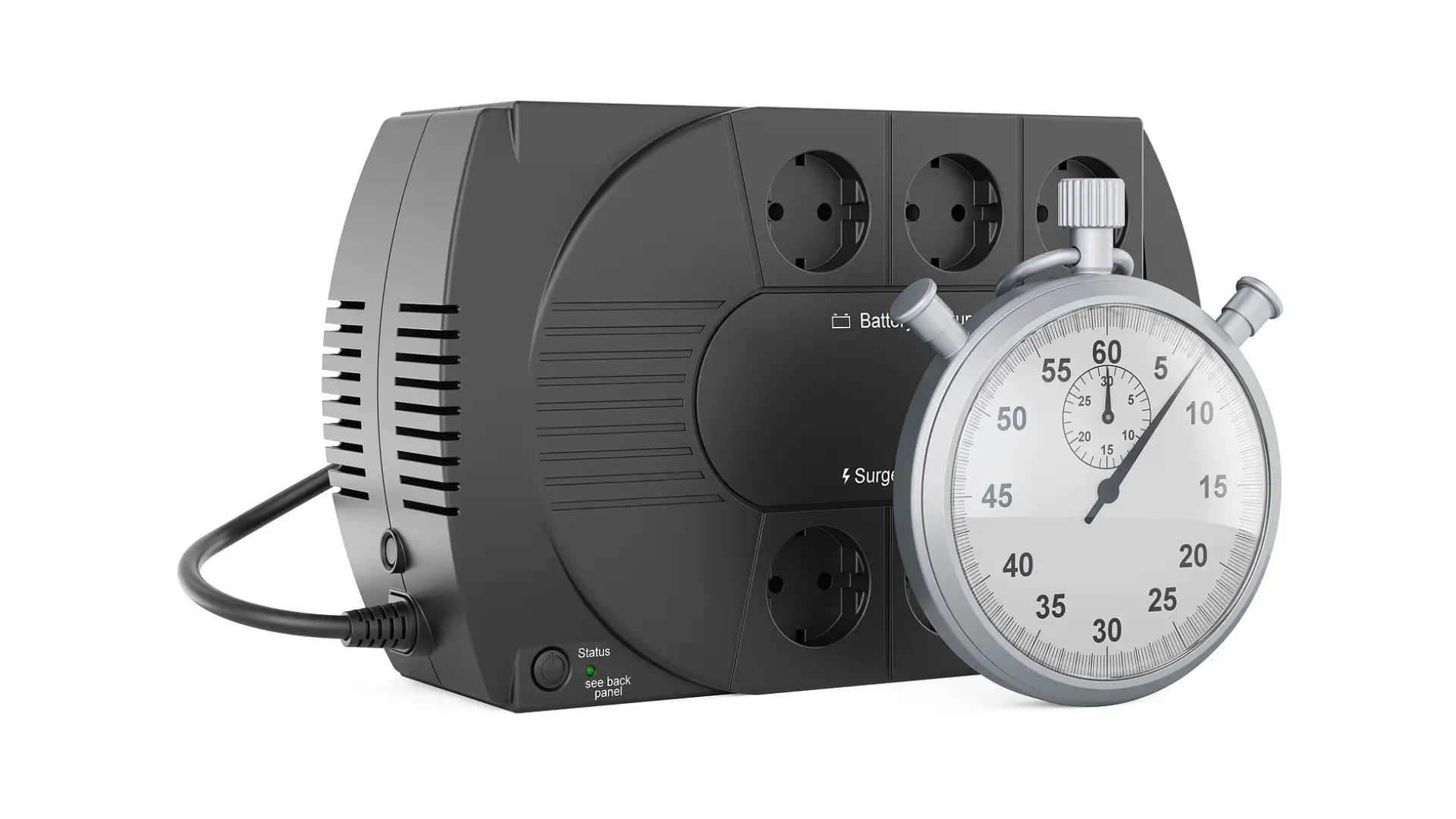
The Advantages of Uninterrupted Power Supply (UPS): Ensuring Business Continuity and Peace of Mind
In today's fast-paced and interconnected world, having a reliable power supply is absolutely crucial. We've all experienced the frustration and inconvenience that comes with sudden power outages. Whether you're at home or running a business, these interruptions can result in data loss, financial setbacks, and a whole lot of stress. That's where Uninterrupted Power Supply (UPS) systems come to the rescue.
Let's dive into the world of UPS systems and explore how they can be a lifesaver for individuals and organizations like mine, ensuring that we can go about our daily lives without constantly worrying about power disruptions. These systems provide us with the peace of mind we all crave in this digital age.
Understanding Uninterrupted Power Supply (UPS)
To fully appreciate the multitude of benefits associated with Uninterrupted Power Supply (UPS) systems, it is crucial to develop a comprehensive understanding of their purpose and operation. A UPS is a specialized electrical device meticulously engineered to offer backup power to critical loads in the event of a disruption in the primary power supply or a mains power failure.
Its role as an intermediary component between the primary power source and connected devices ensures a smooth and uninterrupted transition from one power source to another when such a switch becomes necessary.
This indispensable device safeguards against power interruptions, providing a reliable power source to keep essential equipment and systems running seamlessly, thereby minimizing downtime and potential damage during power outages.

Advantages of UPS Systems
UPS (Uninterruptible Power Supply) systems offer a wide range of benefits that go beyond simple power backup. These systems are the cornerstone of reliability across various industries, providing the following advantages:
Continuous Operation: The Backbone of Reliability
At the core of UPS system advantages is their capability to sustain an uninterrupted power supply during power outages or fluctuations. This continuous power supply is the lifeline for various critical operations across industries, including data centers, healthcare facilities, manufacturing units, and telecommunications networks.
The uninterrupted operation is not only crucial for business functions but also for preserving vital services, such as life support systems in healthcare settings. Without a UPS system, even momentary power interruptions could have dire consequences.
Protection Against Power Surges: Shielding Your Electronics
UPS systems are equipped with robust surge protection mechanisms that act as a barrier between your connected devices and the erratic voltage surges or spikes that can occur in the electrical grid. These sudden voltage increases can wreak havoc on sensitive electronics, causing irreparable damage.
By intercepting and mitigating these voltage anomalies, a UPS system safeguards your valuable equipment and ensures their longevity. This protection extends not only to computers and servers but also to industrial machinery and telecommunications infrastructure.
Data Integrity: Guarding Against Data Loss
In today's data-driven landscape, data is akin to gold. A sudden power loss can lead to data corruption or loss, potentially incurring substantial financial and operational setbacks. UPS systems provide a critical window of time for users to save their work, shut down systems gracefully, and prevent data loss.
This capability is especially vital for businesses relying on continuous data processing, as it ensures the preservation of mission-critical data and maintains the integrity of business operations.
Reduced Downtime and Financial Losses: The Bottom Line Impact
For businesses, downtime equates to financial losses. UPS systems play a pivotal role in minimizing downtime by ensuring continuous operation during power interruptions. The initial investment in a UPS system is often outweighed by the cost savings achieved through increased productivity and revenue continuity.
In sectors such as e-commerce, financial services, and manufacturing, even a few minutes of downtime can result in significant revenue losses and damage to the brand's reputation. UPS systems offer a crucial buffer against such scenarios.
Enhanced Equipment Lifespan: Prolonging the Life of Your Assets
Frequent power disruptions can be detrimental to electronic equipment. UPS systems provide an added layer of protection by stabilizing power and reducing wear and tear on devices. This not only ensures their reliable operation but also extends their lifespan.
The financial benefits of prolonging equipment life cannot be understated. It reduces the need for frequent equipment replacements, which can be a significant capital expenditure for businesses, and it aligns with sustainability goals by reducing electronic waste.
Environmentally Friendly: An Eco-Conscious Choice
In addition to the evident financial advantages, UPS systems also contribute to environmental sustainability. By preventing unnecessary equipment replacements and reducing energy waste during power fluctuations, they play a role in lowering carbon emissions and minimizing electronic waste.
As organizations increasingly focus on their environmental footprint and corporate social responsibility, opting for UPS systems is a step toward a greener, more sustainable future.
Safeguarding Critical Infrastructure: Protecting Public Services
Beyond businesses, critical infrastructure such as telecommunications networks, emergency services, and public utilities rely heavily on UPS systems to ensure uninterrupted operation during emergencies. These systems are a linchpin of public safety and national security, ensuring that essential services are always available, even in the face of adverse conditions or disasters.
Types of UPS Systems

Understanding the different types of UPS systems is crucial for selecting the one that best suits your specific needs. The three primary types of UPS systems are:
Offline (Standby) UPS: Cost-Effective Basic Protection
Offline UPS systems serve as an entry-level option, offering cost-effective protection for personal computers and small-scale applications. These systems switch to battery power when the primary power source fails, providing basic protection against power disruptions.
While they may not offer the advanced features of other UPS types, offline UPS systems are a sensible choice for individuals and small businesses with modest power protection requirements.
Line-Interactive UPS: Enhanced Protection for SMEs
Line-Interactive UPS systems are designed for small to medium-sized businesses. They provide enhanced protection by actively regulating voltage levels and offering surge protection, reducing the risk of equipment damage during voltage fluctuations.
These UPS systems strike a balance between cost and functionality, making them a suitable choice for businesses looking to safeguard their critical equipment without breaking the bank.
Online (Double-Conversion) UPS: Unrivaled Protection for Critical Applications
Online UPS systems represent the pinnacle of UPS technology and are tailored for critical applications. They operate by continuously converting AC power to DC power and then back to AC power, ensuring the cleanest and most stable power supply to connected devices.
This level of protection makes online UPS systems ideal for industries such as finance, healthcare, and data centers, where uninterrupted operation is non-negotiable. They provide a seamless transition to battery power without any delay, ensuring that mission-critical systems never experience downtime.
Choosing the Right UPS for Your Needs
When it comes to choosing the ideal Uninterruptible Power Supply (UPS) system to meet your specific requirements, there are several key considerations that should not be overlooked. These factors play a crucial role in ensuring that you make a well-informed decision that aligns with your needs and budget.
Load Capacity
One of the most fundamental aspects to consider when selecting a UPS system is its load capacity. This refers to the amount of power the UPS can supply to your connected equipment. Ensure that you accurately assess the total power requirements of your devices to prevent overloading the UPS, which could lead to system failures during power outages.
Runtime Requirements
Determining how long you need your UPS to provide power during an outage is equally vital. Depending on your specific applications and the importance of uninterrupted power, you may require a UPS with longer runtime capabilities. It's crucial to factor in the time needed to safely shut down your equipment or to switch to an alternative power source.
Equipment Type
The type of equipment you intend to protect with the UPS system also influences your choice. Different devices have varying power needs and sensitivities to power fluctuations. For example, sensitive electronic equipment like servers or medical devices may require a UPS with precision voltage regulation and surge protection.
Professional Guidance
To navigate these considerations effectively and select the most suitable UPS for your unique needs, consulting with a professional in the field is highly recommended. An experienced UPS specialist can provide invaluable insights and guidance, ensuring that you make the right choice to safeguard your equipment and operations.

Maintenance and Monitoring of UPS Systems
Effective maintenance and monitoring of Uninterruptible Power Supply (UPS) systems are crucial to harness their full potential and guarantee seamless operation during critical situations. Ignoring these essential tasks can lead to decreased reliability and heightened downtime. Here are some comprehensive aspects of UPS system maintenance:
- Battery Health: Regularly evaluate the condition of UPS batteries through thorough testing. Replace any batteries that show signs of degradation or diminished capacity promptly. This ensures that the UPS can deliver the required backup power when needed.
- Firmware Management: Keep the UPS system's firmware up to date. Regularly check for firmware updates provided by the manufacturer. These updates often include enhancements in functionality and security patches, ensuring the system's continued reliability and protection against potential vulnerabilities.
- Comprehensive System Checks: Conduct routine and comprehensive checks to verify the proper functioning of all UPS components. This includes inspecting the power modules, capacitors, fans, and other critical elements. Identifying and addressing any issues promptly can prevent system failures and unexpected downtime.
- Load Testing: Periodically perform load testing to ensure that the UPS can handle the expected power load during an outage. This testing helps in identifying potential issues and allows for necessary adjustments to be made in advance.
- Environmental Monitoring: Implement environmental monitoring solutions to track factors like temperature and humidity within the UPS environment. Maintaining optimal conditions ensures the longevity and performance of the UPS system and associated batteries.
- Remote Monitoring: Utilize remote monitoring and management tools to continuously monitor the UPS system's status. This allows for real-time alerts and proactive response to any irregularities or malfunctions.
- Documentation and Reporting: Maintain detailed records of all maintenance activities, tests, and inspections. This documentation helps track the system's performance over time and aids in planning for future maintenance needs.
- Emergency Preparedness: Develop and regularly update an emergency response plan for your UPS system. Ensure that staff is trained on how to respond to UPS failures and outages, minimizing disruption to critical operations.
Frequently Asked Questions (FAQs) about Uninterrupted Power Supply (UPS)
In this section, we'll address some of the most common questions people have about Uninterrupted Power Supply (UPS) systems and their advantages.
Q1: What is a UPS system, and how does it work?A: A UPS (Uninterrupted Power Supply) system is an electrical device that provides backup power during electrical interruptions. It consists of a battery or battery bank that stores electrical energy. When the primary power source fails or experiences fluctuations, the UPS system seamlessly switches to battery power, ensuring uninterrupted electricity to connected devices.
Q2: What are the primary advantages of using a UPS system?A: UPS systems offer several advantages, including:
- Continuous Operation: Ensures uninterrupted power supply during outages.
- Protection Against Power Surges: Shields electronics from voltage spikes.
- Data Integrity: Prevents data loss during power interruptions.
- Reduced Downtime: Minimizes business downtime and financial losses.
- Enhanced Equipment Lifespan: Extends the life of electronic equipment.
- Environmentally Friendly: Reduces electronic waste and energy consumption.
- Safeguarding Critical Infrastructure: Ensures the operation of essential services during emergencies.
Q3: Do I need a UPS system for my home office?A: A UPS system can be beneficial for home offices, especially if you rely on computers and sensitive electronic equipment for your work. It ensures that you can continue working during power outages and protects your equipment from damage due to voltage fluctuations.
Q4: Are there different types of UPS systems, and how do I choose the right one?A: Yes, there are different types of UPS systems, including Offline (Standby), Line-Interactive, and Online (Double-Conversion) UPS systems. The choice depends on your specific needs. Consider factors like load capacity, runtime requirements, and the criticality of the equipment you're protecting. Consulting with a professional can help you select the right UPS system for your needs.
Q5: How often should I perform maintenance on my UPS system?A: Regular maintenance is essential to ensure the reliability of your UPS system. Tasks may include battery testing, firmware updates, and system checks. The frequency of maintenance depends on factors like the age of the UPS and its usage. It's advisable to follow the manufacturer's recommendations and have a professional technician perform maintenance as needed.
Q6: Can UPS systems be used in industrial settings?A: Yes, UPS systems are commonly used in industrial settings to protect critical machinery and processes from power interruptions and voltage fluctuations. They play a crucial role in ensuring uninterrupted operation in manufacturing, oil and gas, and other industries where downtime can result in significant financial losses.
Q7: Are there any downsides to using a UPS system?A: While UPS systems offer numerous advantages, it's important to note that they have limitations. The primary downsides include the cost of purchase and maintenance, as well as the finite runtime of the UPS during power outages. Additionally, UPS systems generate heat and require proper ventilation.
Q8: Can UPS systems protect against all types of power problems?A: UPS systems are highly effective at safeguarding against common power problems like outages, surges, and sags. However, they may not protect against long-duration power outages unless paired with backup generators. Additionally, UPS systems have limited capacity and may not protect all devices simultaneously in the event of a prolonged outage.
Q9: Are UPS systems eco-friendly?A: UPS systems can contribute to environmental sustainability by reducing electronic waste and preventing unnecessary equipment replacements. They also minimize energy waste during power fluctuations, which helps reduce carbon emissions. However, it's important to dispose of UPS batteries properly, as they contain hazardous materials.
Q10: Can I install and set up a UPS system myself?A: While some basic UPS systems are user-friendly and can be set up without professional assistance, more complex systems may require the expertise of an electrician or IT technician. It's crucial to follow the manufacturer's instructions and safety guidelines during installation and setup to ensure proper functionality.
Conclusion
In my reflection on the significance of Uninterrupted Power Supply (UPS) systems, it's clear that they offer more than just electrical backup; they provide a profound sense of security and peace of mind. As someone who values uninterrupted work and the safety of my electronic devices, I appreciate the role UPS systems play in ensuring that power interruptions don't disrupt my daily life.
Whether I'm working from home or running a business, the advantages of UPS systems are evident. They act as reliable safeguards, offering a continuous power supply during outages, shielding my electronics from harm, and reducing downtime. Making the right choice when it comes to selecting a UPS system tailored to my needs is a proactive step toward maintaining a resilient and efficient digital environment. It's reassuring to know that, in this digital age, UPS systems are there to provide the peace of mind I need to navigate an unpredictable world with confidence.
Sources
https://www.usaid.gov/energy/powering-health/system-components/uninterruptible-power-supplies
continue reading
Related Posts
- By Published On: Categories: Uninterruptible Power Supply Information0 Comments on Uninterruptable Power Supplies: Ensuring Unstoppable Operations
Uninterruptable Power Supplies In today's world, where technology keeps us […]
- By Published On: Categories: Uninterruptible Power Supply Information0 Comments on Uninterruptible Power Supply For Laptop: Safeguarding Success with Seamless Power
Uninterruptible Power Supply For Laptop In today's fast-paced digital world, […]
- By Published On: Categories: Uninterruptible Power Supply Information0 Comments on Small Uninterruptible Power Supply: Fortify Your Devices with Relentless Security
Small Uninterruptible Power Supply In today's digital age, where connectivity […]



